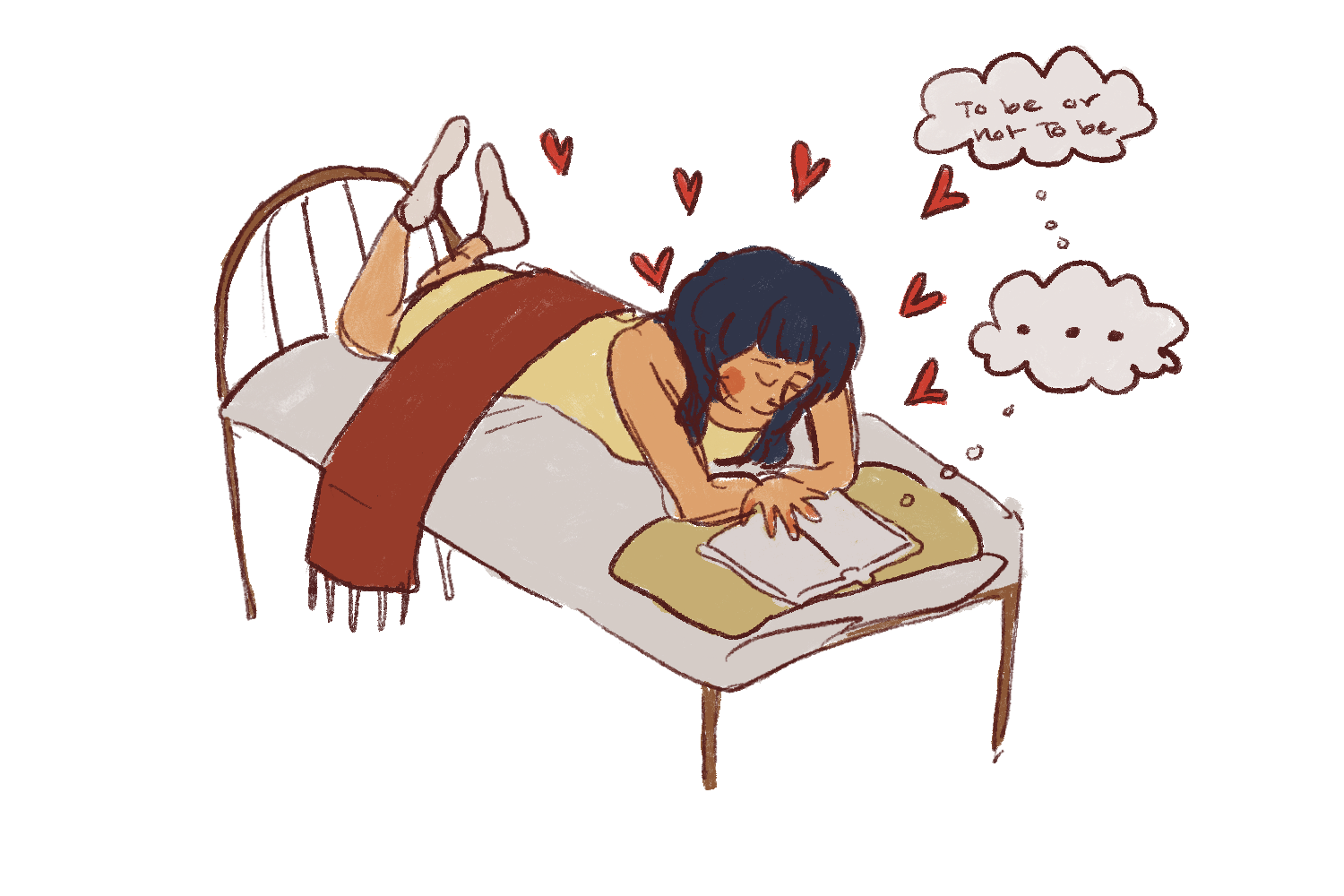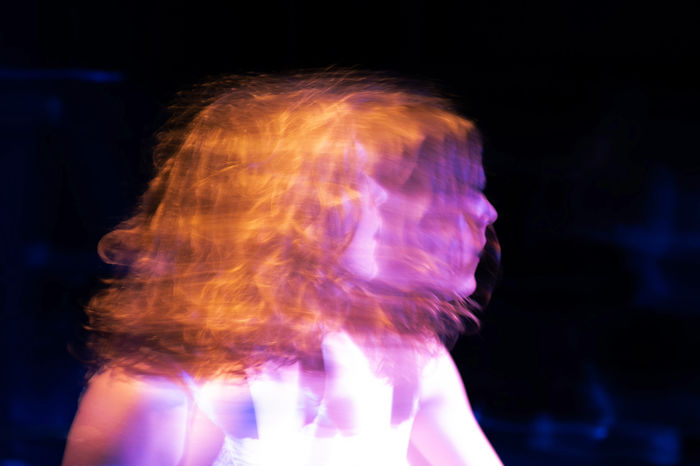Picture this: it is the summer of 2025 and I am back home from Cambridge, lying facedown on my bed. Sprawled next to me are two scripts for plays that I’ll be acting in come Michaelmas, titles emblazoned in red capitals: DIAL M FOR MURDER and BRASSED OFF. Nothing exciting or dramatic has happened to me all summer. I sense my older sister’s presence by the door and lift nothing but my hand in acknowledgement.
Her, sighing, having just returned from a long day of being a doctor and saving human lives: “Are you still worried about falling in love with the actors in your play?” Yes. Yes, I was. I know it sounds stupid, but it was the truth: I was terrified that I would be unable to separate character from actor, fall madly in love with the poor boys I was to be acting out romantic relationships with, and put all of us in a very difficult position. Part of this is because I have the sensibilities of a Victorian teenager – if I like someone enough, I can think about how our shoulders brushed for more time than I’m willing to admit – but part of this is because I know I love a good love story.
“I was terrified by the possibility that I would be unable to separate character from actor”
Alfred Gell, a renowned anthropologist, once wrote: “Modern love would be unthinkable without fiction.” We model our lives after the stories we admire – it is the medium through which we test out ideals and, if they please us sufficiently, perform them into existence. It’s why, year after year, American promposals replicate the famous John Cusack boombox scene, or why a not-insignificant number of people can quote Mr Darcy’s “you have bewitched me, body and soul” line off the top of their head. All good fiction, of course, lingers with us and transforms us in subtle ways. But it seems especially true of romance that the line between fantasy and reality can be tenuous.
Michaelmas dawned, and, to my relief, I found that falling in love with a person you act with is much more difficult than you’d think. In Dial M for Murder, I played Sheila a 1950s housewife who is secretly having an affair with a crime writer, Max Halliday. In Brassed Off, I played Gloria Mullins, a musician who who rekindles a relationship with an old fling from school, Andy Barrow.
It occurred to us early on that everything about Dial M, of Hitchcock murder mystery fame, was going to have to be smooth, slick, and stylish. As such, the directors were keen to choreograph the relationship. Every line was analysed and every movement planned – cascading red dress and an infinite flow of cocktails, doors opening and slamming shut in perfect time. The actor playing Max and I worked through the characters clinically: how they met, what they talked about, whether they shared cigarettes and who kept the lighter.
“Every line was analysed and every movement planned”
On the other hand, Brassed Off was a huge ensemble piece. We felt not only that we had much more room to improvise, but that we were burdened with the responsibility of it. As a show, it was much more instinctive than Dial M, and it was exhilarating to work with the actor playing Andy: I’d mess up his hair, he’d aim his tenor horn at my ear; things we’d seen the real brass band involved in the show do. We improvised different things every night, which added to the sense of a give-and-take so ubiquitous in nascent romances. Once a scene ended, we’d critically comb through how we felt about it, what needed to be toned down, and what could be further played up.
But it was the world beyond the cast that surprised me most. Each night, as I sat in the ADC bar after the show and strangers approached me to give their congratulations, there was a strange sense of familiarity that I had never felt before. It was as if the boundary which exists when meeting new people had disappeared. We accord romantic relationships the greatest confidentiality and assume that romantic partners know things about each other we could not – or should not – be privy to. In early stages of dating, we offer bits of information about ourselves and observe the other’s reaction, slowly creating our own torrent of secrecy and information in order to build closeness.
On an illusory level, my experiences in the bar could be because people see the character in me. When we watch actors playing romantic roles, we see a side of the person that is usually tucked away: their clumsiness on a first date, or the way their eyes follow the movement of the one they desire, and instinctively feel a level of intimacy we are primed to associate with knowledge.
“When we watch actors playing romantic roles, we see a side of the person that is usually tucked away”
But it was the world beyond the cast that surprised me most. Each night, as I sat in the ADC bar after the show and strangers approached me to give their congratulations, there was a strange sense of familiarity that I had never felt before. It was as if the boundary which exists when meeting new people had disappeared. We accord romantic relationships the greatest confidentiality and assume that romantic partners know things about each other we could not – or should not – be privy to. In early stages of dating, we offer bits of information about ourselves and observe the other’s reaction, slowly creating a torrent of secrecy and information to build closeness.
I will (hopefully) never be falsely accused of murder by the wonderful Amenie Groves, nor is it likely that the lovely Maddie Lock will passive aggressively question me about my involvement in a colliery band. The show remains fiction, after all. But we grow in intimacy over the make-believe: Amenie and I learn the intricacies of each other’s demeanour to build the correct rhythm of dialogue for an interrogation, and Maddie and I giggle backstage and further piece together each other’s natural senses of humour in order to perfect our comedic timing. In this, there is love – for the art, for the show, and for each other.


